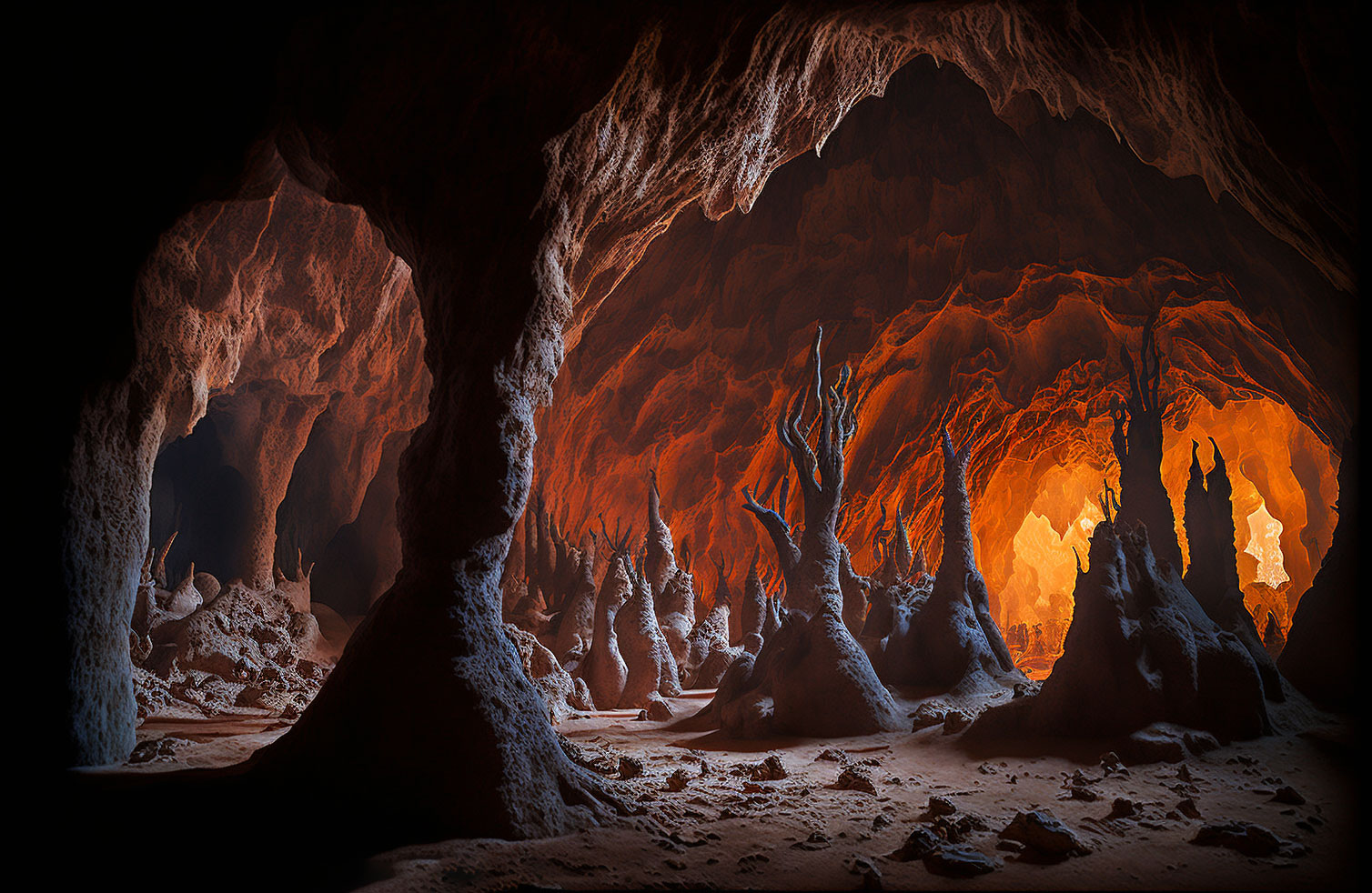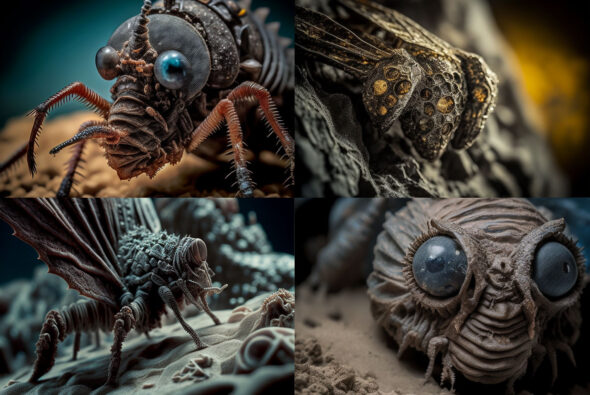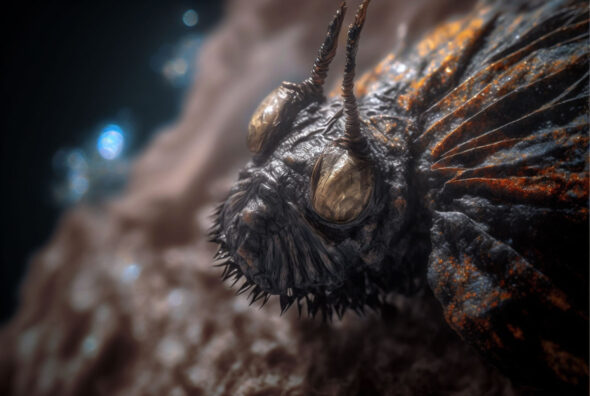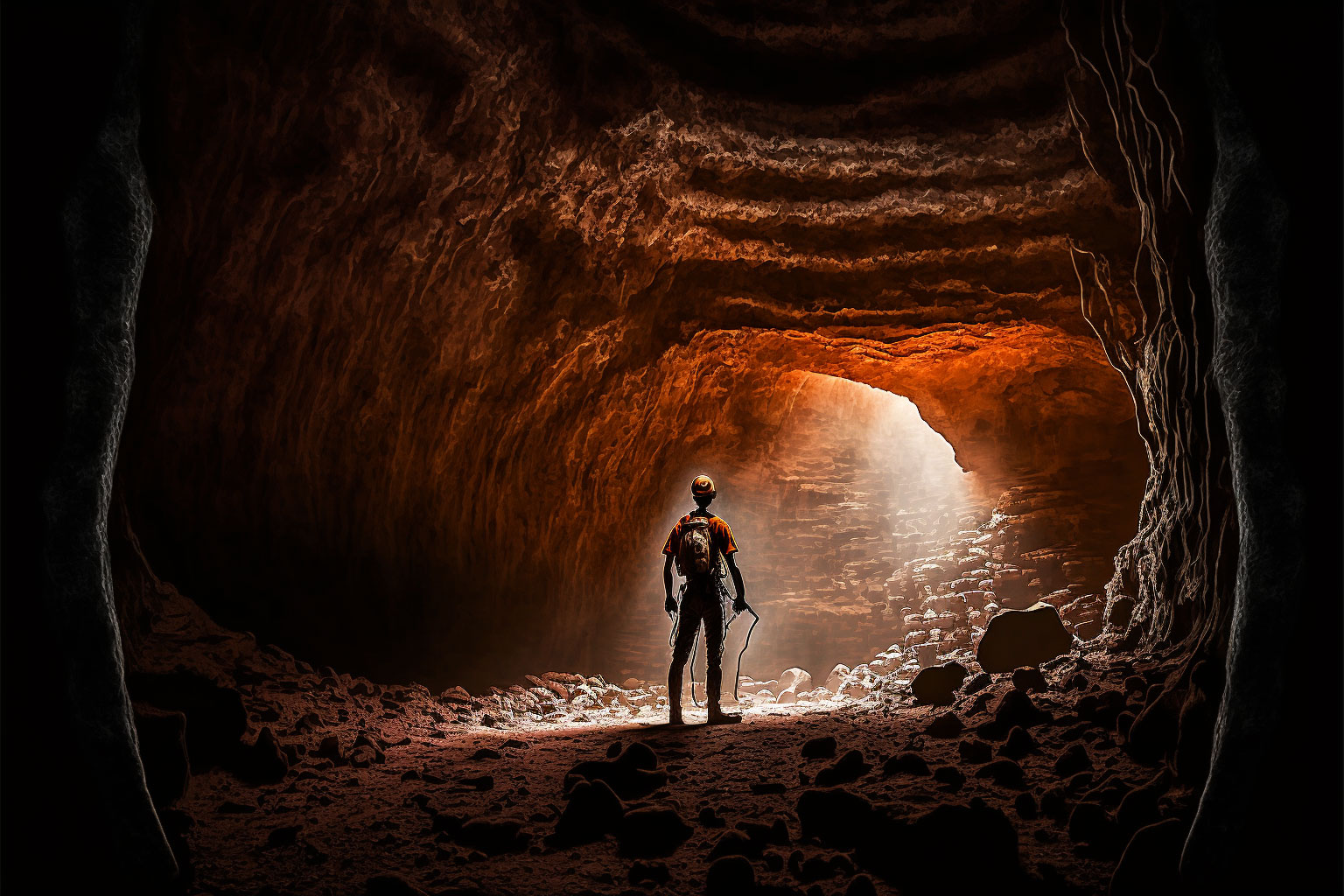AI at this point in time: News story on hidden caves on Mars
This story is written by ChatGPT and is made up. Photos are made using Midjourney.

Historic Photographic Expedition Uncovers Hidden Caves and Possible Alien Fossils on Mars
NASA scientists made a groundbreaking discovery during a recent photographic expedition to Mars: hidden caves and possible fossils of extraterrestrial life.
The expedition, which was led by Dr. Alice Roberts and her team at the Mars Institute, focused on exploring the planet’s Valles Marineris region, an expansive system of canyons that stretches across the Martian equator. Using advanced imaging technology, the team was able to identify a series of underground tunnels and caverns that had previously gone undetected.
Upon further investigation, the team discovered what appeared to be the remains of a dried-up river running through the caves. The presence of water on Mars has long been a subject of fascination and debate among scientists, and this discovery is being hailed as a major step forward in our understanding of the planet’s history and potential for supporting life.

But the team’s most surprising discovery came when they stumbled upon a series of fossilized remains in one of the caves. The fossils, which appear to belong to some sort of small, insect-like creatures, are being analyzed by experts in the field to determine if they are evidence of past or present life on Mars.
“This is an incredible finding that has the potential to completely change our understanding of the universe and our place in it,” said Dr. Roberts. “We are still in the early stages of analysis, but the evidence we have gathered so far is truly groundbreaking.”
The team is planning to return to Mars in the near future to conduct further research and exploration in the hidden caves. In the meantime, the scientific community is eagerly awaiting the results of the team’s analysis and the potential implications for the search for life beyond Earth.
This is a developing story, and more information will be released as it becomes available.
AstrobiologyAstrobiology is the study of the origins, evolution, distribution, and future of life in the universe. It is a multidisciplinary field that combines elements of biology, astronomy, chemistry, and geology to understand the potential for life on other planets and the conditions that might support it. Some key questions that astrobiologists seek to answer include:
Astrobiology has made many significant contributions to our understanding of the universe and the potential for life beyond Earth. Some notable examples include the discovery of microbial life on Earth in extreme environments, the identification of potential habitats for life on other planets and moons, and the detection of organic molecules on celestial bodies such as Mars and Titan. Astrobiology is a rapidly growing field, with numerous research institutions and agencies around the world dedicated to studying it. Some of the major players in the field include NASA, the European Space Agency, and the SETI Institute. |
Update: I asked for a follow-up story once the analysis was done. This is cool, the ability to build upon previous chat content.
Possible Alien Fossils Confirmed on Mars
In a groundbreaking announcement, NASA scientists have confirmed that the fossilized remains discovered in the hidden caves of Mars are indeed evidence of past or present extraterrestrial life.

The announcement, which was made during a press conference held at the Mars Institute, sent shockwaves through the scientific community and sparked widespread media coverage.
According to Dr. Alice Roberts, the lead scientist on the expedition, the fossils are unlike anything previously seen on Mars or any other planet in our solar system. “These creatures were small, insect-like, and appeared to have a complex internal structure,” she said. “We are still trying to understand their exact place in the evolutionary tree, but it is clear that they represent a completely new branch of life.”
The team also announced that they had discovered microbial life in the dried-up riverbed, further supporting the theory that Mars may have once had the necessary conditions to support more complex forms of life.
The discovery of these fossils and microbial life has major implications for our understanding of the universe and the possibility of life on other planets. It also raises the possibility that Mars may still be home to some form of microbial life, and further exploration and study is needed to confirm this theory.
“This is a truly historic moment in the field of astrobiology,” said Dr. Roberts. “We are excited to continue our research and see what other discoveries may be waiting for us on Mars.”
Update 2: A feature story on the lead scientist, Dr Alice Roberts.
Meet Dr. Alice Roberts: The Astrobiologist Behind the Historic Mars Fossil Discovery

Dr. Alice Roberts is a household name in the world of astrobiology. As the lead scientist on the team that made the historic discovery of possible alien fossils on Mars, she has been at the center of international media attention and is being hailed as a trailblazing researcher in her field.
But Dr. Roberts’ journey to this moment was far from a straight path. Born and raised in rural New York, she developed a love of science at a young age, and spent her summers interning at various research institutions. After earning her undergraduate degree in biology, she decided to pursue her passion for space exploration by earning a PhD in astrobiology from the Massachusetts Institute of Technology.
It was during her time at MIT that Dr. Roberts became interested in the search for life beyond Earth. She spent countless hours in the lab, studying the conditions that might support life on other planets and working on projects that aimed to understand the origins and evolution of life in the universe.
After completing her PhD, Dr. Roberts joined the Mars Institute, where she quickly rose through the ranks to become one of the leading researchers in the field. She led several successful expeditions to Mars, including the one that made the recent fossil discovery, and has published numerous papers on her findings.
When asked about the significance of the fossil discovery, Dr. Roberts is quick to emphasize the importance of continued research and exploration. “This is just the beginning,” she says. “We have only scratched the surface of what Mars has to offer, and there is so much more that we can learn about the history and potential of this fascinating planet.”
Looking to the future, Dr. Roberts is excited to continue her work at the Mars Institute and to be at the forefront of the search for life beyond Earth. “I am grateful to be a part of this incredible field,” she says. “The possibilities are endless, and I can’t wait to see what we will discover next.”




















Recent Comments